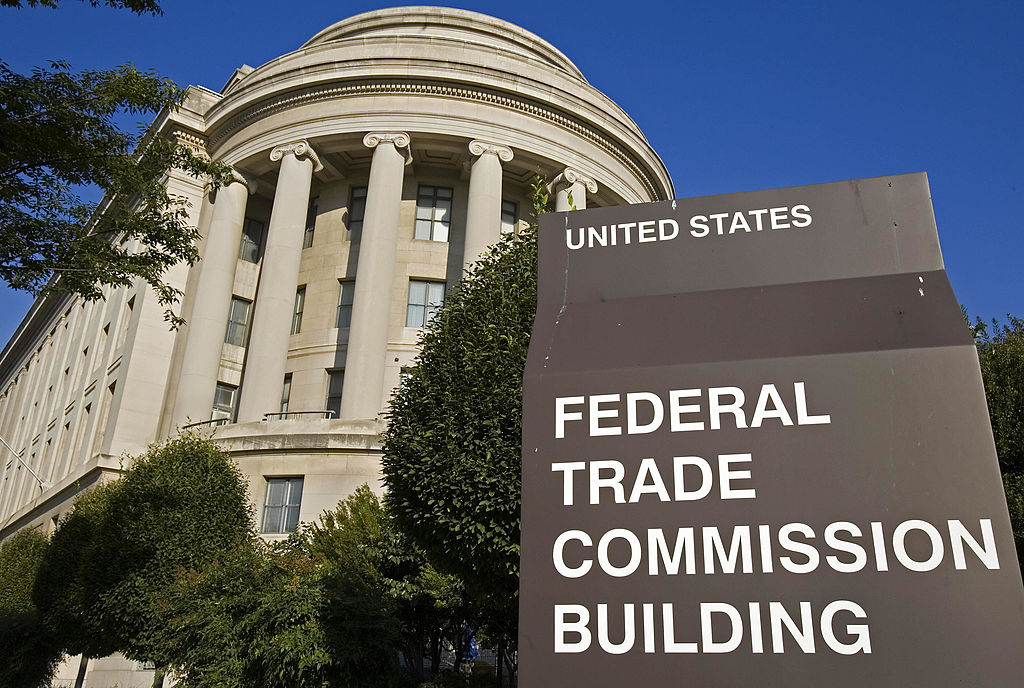Advertisers to FTC: Banning Targeted Ads Threatens Trillions in GDP
Supporters of the measure say the practice’s harms outweigh its benefits

The smarter way to stay on top of broadcasting and cable industry. Sign up below
You are now subscribed
Your newsletter sign-up was successful
Advertisers, edge providers and legislators are giving the Federal Trade Commission an earful over a petition by Accountable Tech to ban so-called surveillance online advertising as anti-competitive “unfair competition.”
That includes claims by advertisers that granting the petition would imperil trillions of dollars in U.S. gross domestic product.
By “surveillance,” Accountable Tech means ads based on tracking and profiling data that allows the hyper-targeted ads that sponsors point out are part of the ad-based model of free online content.
In comments to the FTC about the petition, the Association of National Advertisers said banning data-driven targeted ads would “stifle” internet-based advertising, threatening “trillions of dollars” in economic activity. That is based on the fact that the Internet economy contributed $2.45 trillion of the U.S. $21.18 trillion GDP, said ANA.
A ban would mean “a swift decrease in the availability of accessible information for consumers, cripple the economy and disproportionately impact small and midsize businesses,” ANA told the FTC.
The Interactive Advertising Bureau (IAB) called the ban petition “baseless,” and discounted it as “a self-interested stunt manufactured by competitors” seeking to “declare the commercial internet itself an unfair business practice." Accountable Tech does not identify its backers.
IAB CEO David Cohen said data use and customized ads predate the internet, and simply banning them "would be a devastating blow to jobs, economic growth and innovation.”
The smarter way to stay on top of broadcasting and cable industry. Sign up below
Taking the other side, Democratic Rep. Anna Eshoo (D-Calif.) and Sen. Cory Booker (D-N.J.) told the FCC that they support the petition, branding such ads as “the internet’s Original Sin” and a “time bomb” along the lines of the subprime mortgage crisis.
“The surveillance advertising business model is premised on the unseemly collection and hoarding of personal data to enable ad targeting,” they told the agency. “Companies collect huge amounts of data to maximize user engagement because it increases ad revenue. The FTC should evaluate the harms to society and individuals, as we believe they vastly outweigh the benefits.”
They were hardly alone in advocating for the FTC to step into the online advertising space.
“[S]urveillance on such a scale represents an unprecedented interference with the right to privacy that cannot be compatible with the companies’ responsibility to respect human rights,” said Amnesty International.
“[T]he benefits of surveillance advertising do not outweigh the harms, since relevant ads can be delivered to consumers in a much less privacy-intrusive manner through contextual advertising,” the Consumer Federation of America said.
“As noted in Accountable Tech’s petition, surveillance advertising causes serious harm to both the market and individuals,” Public Knowledge said. “The commission’s dual role as both a competition agency and a consumer-protection agency make it the ideal administrative body to promulgate rules to curb abusive practices by the online advertising ecosystem.”
Lawmakers Weigh In
The issue is also playing out on the legislative front.
A bill was introduced two weeks ago, the Banning Surveillance Advertising Act, that would ban the use of personal information to target most online advertising.
The bill was introduced by Eshoo and Booker along with Rep. Jan Schakowsky (D-Ill.). IAB said of the bill last week that the sponsors must not understand the degree to which the bill would “effectively eliminate internet advertising in the United States, jeopardizing an estimated 17 million jobs primarily at small- and medium-sized businesses.” ■
Contributing editor John Eggerton has been an editor and/or writer on media regulation, legislation and policy for over four decades, including covering the FCC, FTC, Congress, the major media trade associations, and the federal courts. In addition to Multichannel News and Broadcasting + Cable, his work has appeared in Radio World, TV Technology, TV Fax, This Week in Consumer Electronics, Variety and the Encyclopedia Britannica.

